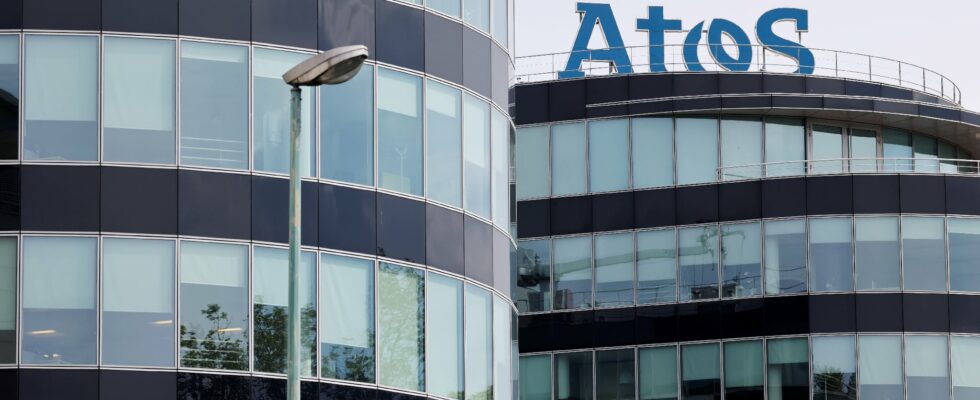“Successful financing”. In a press release, the troubled French IT group Atos, the technological pillar of the 2024 Olympic Games, announced on Monday July 15 that it had received a commitment from a group of banks and bondholders to secure financing for its restructuring plan, which amounts to €1.675 billion. Thanks to this agreement, “the objective is to open an accelerated safeguard procedure during the week of July 22, 2024 in order to obtain court approval and implement the financial restructuring plan,” the company said. on his site.
This announcement reinforces hopes of a way out of the crisis for the group with more than 90,000 employees in 69 countries, which has been plunged into a financial saga with multiple twists and turns in recent months. Weighed down by a colossal gross debt of 4.8 billion euros, Atos initiated a restructuring procedure in February and has since been tossed around by takeover bids.
Following the withdrawal at the end of June of the consortium led by Onepoint, the main shareholder of Atos initially chosen to carry out this rescue, the creditors and the banks agreed to take over and save the company themselves.
One of the pillars of the Paris Olympics
The agreement includes in particular a capital increase of 233 million euros, a contribution of 1.675 billion euros and a debt reduction of approximately 3 billion euros. “The restructuring operations will then be implemented during the second half of 2024 with a view to effective completion by the end of 2024 or during the first quarter of 2025,” the group repeats.
Banks and bondholders will then become the majority shareholders of Atos: they will hold up to 99.9% of the capital. The capital increase is however open to current shareholders who would not like to see their stake diluted and could, if they contribute, secure a maximum of 25.9% of the capital.
Worldwide IT partner of the International Olympic Committee (IOC) since 2002, Atos is one of the technological pillars of the Paris Olympic Games which begin on July 26, in charge in particular of the management of accreditations, the instantaneous dissemination of results and cybersecurity. Its future also has a strong political dimension linked to its strategic activities in the field of defense (army equipment or supercomputers used for the French nuclear deterrent).
